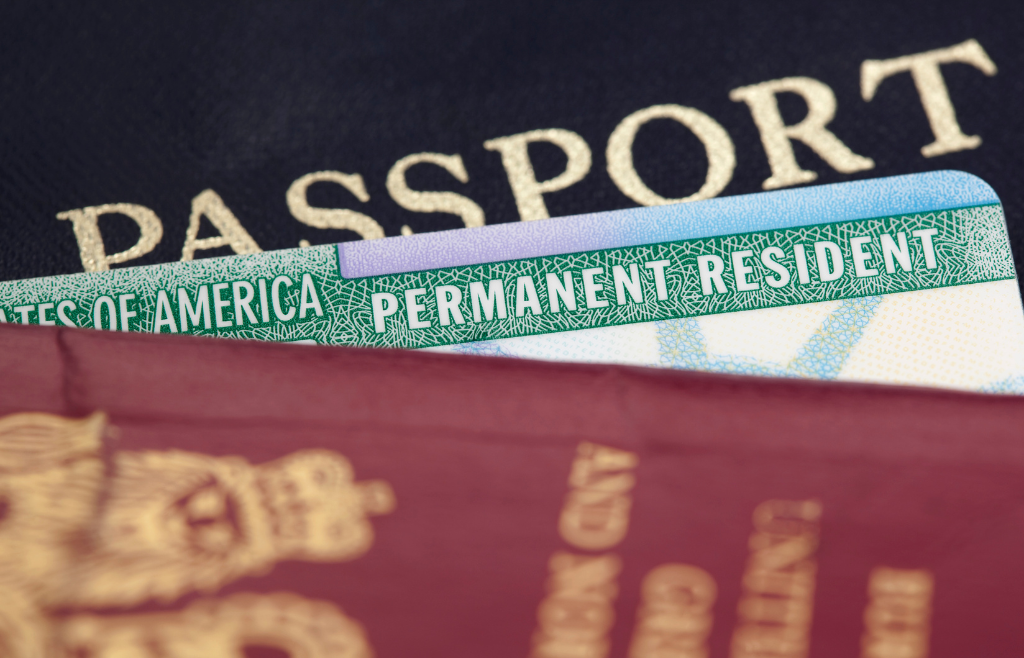Filing an I-751 is an emotional rollercoaster – both good and bad. If you’re still married, it’s a time of joy. You can finally remove residence restrictions. However, if you’re separated or divorced, there is a risk of denial.
Our team at ZafiroLaw will walk you through the application process, discuss processing times and fees, and be by your side through approval or denial.
What is the I-751 Waiver?
Marrying a U.S. citizen gives you the right to a green card or lawful permanent resident status. Permanent residency status comes with conditions that must be met, or you risk losing the green card. Conditional residency comes with a two-year validity, after which you’ll need to file Form I-751.
Filing and approval of the waiver converts your 2-year green card to a 10-year card.
U.S. Citizenship and Immigration Services (USCIS) knows that marriage with intent to acquire a green card is common. The waiver verifies that the marriage was real and allows for permanent residency.
Note: If you were married for two years or longer on the day permanent residency was granted, you will not need to file a petition.
How to File an I-751 Waiver
Applying to remove residency conditions requires:
- Completion of Form I-751.
- Paying the appropriate fee (use the USCIS calculator).
- Submitting the necessary supporting documentation.
- Send the form to the appropriate address, found here.
Who Can File for an I-751?
If the marriage is still intact, then both partners should file a joint I-751 to prove that they’re in a good-faith marriage. If the marriage is no longer intact, then the one who holds the conditional permanent resident status must obtain the I-751 waiver on their own. We can determine which version of the petition you should file and help you provide the proof necessary for approval.
What Do You Have to Prove for the I-751 Waiver?
Evidence of your marriage is necessary to prove that restrictions should be removed and permanent residence granted. Supplying adequate evidence will help solidify that your marriage is real, such as:
- Credit card statements
- Joint bank account information
- Lease documents
- Mortgage documents
- Joint loan documents
- Utility statements
- Photographs
- Evidence of any shared assets
- Joint tax statements
- Birth certificates of any children you have together
If your marriage is short-lived, collecting this documentation can be difficult. It takes time to build a life together, and if a conflict does lead to divorce, you may have to go through a waiver interview.
We can help you strategize for your I-751 waiver case to prove that you entered your marriage with the intent of it being happily ever after.
What Can You Expect in the I-751 Divorce Waiver Interview?
Many marriages end in divorce. Your marriage may have been bona fide at the start, and somewhere along the line, the relationship broke down.
Divorce can complicate the process of filing an I-751. Because the stakes are so high (deportation is possible if your waiver is denied), it is crucial to work with an experienced immigration attorney.
If you request a divorce waiver, you will likely get an interview notice. The USCIS just wants to ensure that your marriage is legitimate. It is crucial to be prepared for this interview and to bring all supporting documents (along with copies of originals) with you to the meeting.
During the interview, you will be asked a number of questions on personal topics. The officers may want to know:
- When you started experiencing problems in your marriage
- How you met your former spouse
- About your relationships with your ex-spouse’s family
- Whether you’re in a new relationship
- Whether you both took steps to resolve the issues in your marriage
These are just a few of the many possible questions you may be asked. It’s important to be prepared for these types of questions and to have as much evidence as possible to support your answers.
What Is the Approval Rate for I-751?
The approval rate of Form I-751 is high. In Q4 of 2023, 28,177 applications were approved and just 1,545 were denied.
Although approval rates are high, there’s no guarantee that your waiver will be approved. Lack of evidence or filing at the wrong time could lead to your waiver being denied.
What Happens If My I-751 Waiver Is Denied?
An I-751 waiver may be denied for multiple reasons. If your waiver is denied, you will receive a letter from the USCIS stating the reason for the denial.
Some of the most common reasons for rejection include:
- Lack of evidence. The USCIS may find that you have not provided enough evidence of a bona fide marriage.
- Early filing. You only have a small window of opportunity to file an I-751 – 90 days before the CR-1 expires. Submitting your form before this window is a basis for denial.
- Late filing. Alternatively, if you miss the 90-day window, your waiver can also be denied.
- Criminal activity. Past criminal activity can also lead to a denial.
Depending on the reason for the denial and the information in the denial letter, you may have a few courses of action to take:
- Appear in court (the most common option).
- Refile Form I-751.
Typically, the USCIS’s denial letter will include a Notice to Appear, or NTA. An NTA asks you to appear in Immigration Court for removal proceedings.
Although rare, you may not receive an NTA with your denial letter. In this case, you may be able to refile Form I-751.
If your waiver was denied and you receive an NTA, it is crucial to contact an immigration attorney right away. At this stage, you still have an opportunity to provide evidence supporting your claim, but deportation is a very real possibility. You cannot afford to make any mistakes.
Hiring An Attorney Near You to Help with the I-751 Application Process
Filing an I-751 can open the door to permanent residency and a path to citizenship. But lack of evidence and other errors can lead to a denial that may upend your life. To achieve the best outcome in your case, it is critical to work with an experienced immigration attorney.
ZafiroLaw focuses on family-based immigration matters. We understand that filing Form I-751 can be a daunting and emotional task. Our attorneys can help you navigate the process and prepare for the interview with confidence.
Call us at 206-547-9906 today to discuss your case or contact us online to schedule a consultation.


